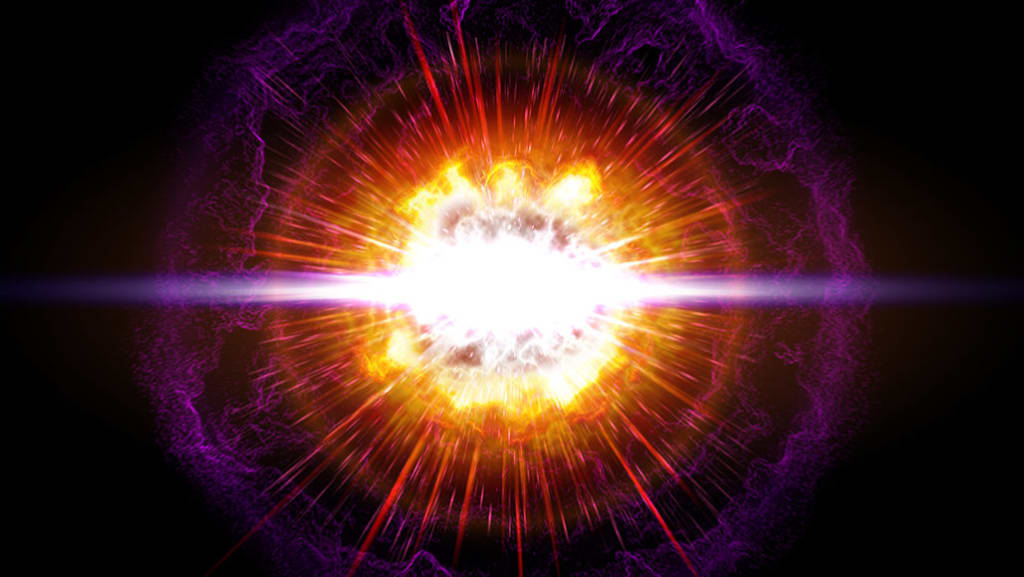
We've all heard about the Big Bang, the event that started everything. However, fewer people are familiar with the Big Crunch. Unlike a candy bar, the Big Crunch is a significant cosmological theory regarding the end of the universe. While most scientists agree that the universe began with a massive burst of energy, opinions differ on how it will end. There are several theories, including the Big Freeze and the Big Rip, but the Big Crunch is considered one of the most plausible scenarios.
The Big Crunch theory is rooted in Einstein's theory of general relativity, which suggests that all processes have an ebb and flow. According to this theory, the universe, after expanding to its maximum size determined by the amount of energy present, will eventually begin to collapse in on itself. This collapse will result in a massive black hole containing all matter, shrinking everything down to a minuscule size, hence the name Big Crunch.
However, there are still uncertainties. The universe's expansion is influenced by two factors: density and outward momentum. Density correlates to gravity, meaning a denser universe has stronger gravitational forces, which would eventually pull everything back together, making the Big Crunch inevitable. Yet, observations show that the universe's outer regions are expanding faster than those closer to us, with galaxies moving apart at increasing speeds. Scientists attribute this to dark energy, an unknown force accelerating the expansion.
The presence of dark energy introduces two potential outcomes. The universe could either continue expanding forever, leading to a Big Freeze, where objects are so far apart that everything freezes, or it could still face the Big Crunch. The outcome depends on the amount of dark energy. If there is enough, the universe will keep expanding; if not, gravity will eventually overpower the expansion and cause a collapse.
Some scientists believe the prevalence of dark energy might signal the beginning of the Big Crunch. A 2015 report suggested that the current expansion rate could be the universe's last gasp before contraction begins, potentially within tens of billions of years.
If the Big Crunch occurs, the universe will contract slowly at first but then accelerate as galaxies draw closer and gravitational forces increase. In about a hundred billion years, this contraction would cause stars to explode, objects to vaporize, and atoms to break apart. Eventually, all matter would compact into a small space, leading to extreme chaos. Predictions suggest that space-time could become so warped that it shatters into droplets, making concepts of time, distance, and direction meaningless. No living organisms would survive this period; life would have ended long before this final stage.
Given our incomplete understanding of the universe, it's impossible to know for sure how it will end. The Big Crunch is one possible scenario, where all matter returns to its origin, forming an unimaginably large black hole. This event could even trigger the birth of a new universe. It's possible that this cycle of expansion and contraction has occurred multiple times, and we are simply living in one iteration of this ongoing process. However, only those planning to live for billions of years would need to worry about these outcomes.
Due to our currently incomplete understanding of the universe, it is impossible to definitively ascertain how it will ultimately conclude. One hypothesis regarding the universe's end is the Big Crunch. In this scenario, all matter in the universe would eventually converge back to its original point, culminating in the formation of an unimaginably large black hole. This event could potentially instigate the creation of a new universe.
Some theories suggest that this cycle of expansion and contraction may have occurred multiple times throughout cosmic history, implying that our present universe is just one iteration within this ongoing, cyclical process. However, the timelines involved in such cosmological events span billions of years, making them a concern only for those who might somehow exist for such vast durations.
About the Creator
Enjoyed the story? Support the Creator.
Subscribe for free to receive all their stories in your feed. You could also pledge your support or give them a one-off tip, letting them know you appreciate their work.





Comments
There are no comments for this story
Be the first to respond and start the conversation.